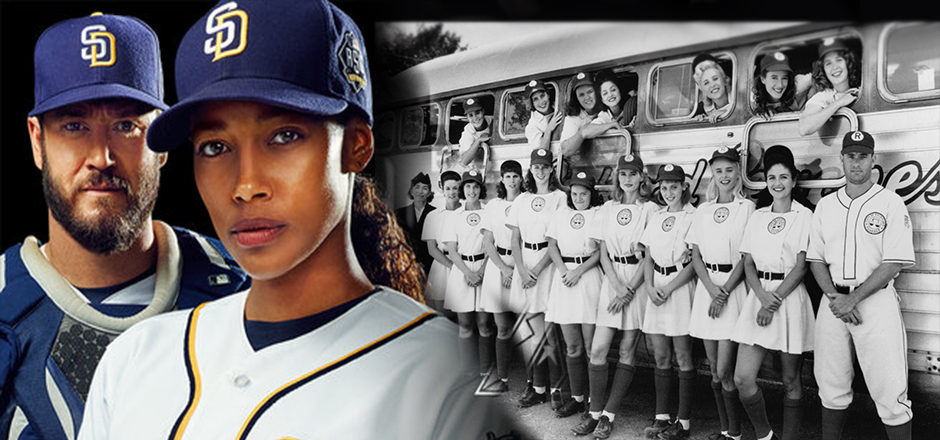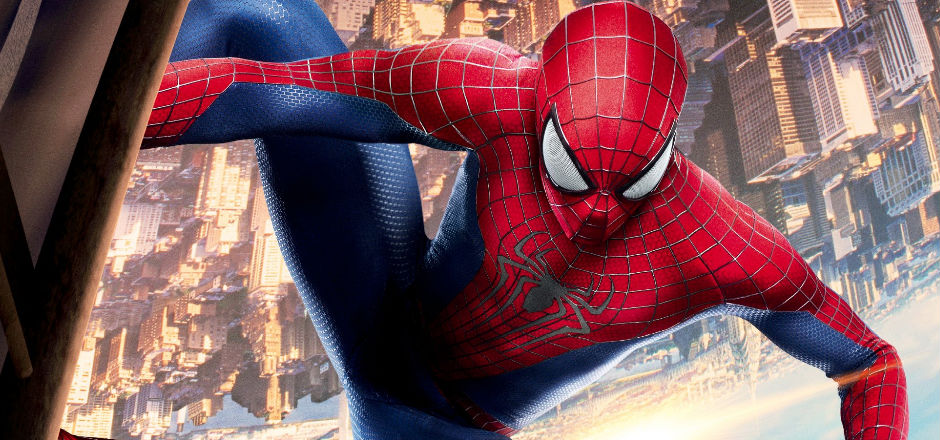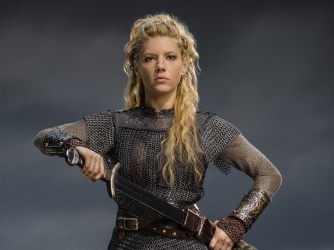I still remember the first time I saw A League of Their Own.
My softball teammates and I watched it together during a rare summer weekend we had off, all sixteen of us gathered around a small TV in the basement, immediately absorbed in the story. The movie is about a group of women who came together to give the United States some semblance of normalcy – baseball – while the men were off fighting in World War II.
We were mesmerized by it, this movie that showed women playing what had normally been referred to as a man’s game, and doing a damn great job of it, too. We had been conditioned to believe that we’d never be able to take the same field men did, that we’d never be good enough and that our sport, and ourselves in general, would always be deemed as second best. A League of Their Own filled that void for us, at least for a little while. After all, the men did come back from war, and the MLB once again resumed its regular status of today.
But then Pitch came along.
Pitch is inspired in part by the journey of Little League World Series participant Mo’ne Davis, who was the first girl to earn a win and pitch a shutout in the Little League World Series, and the first African-American girl to play in the popular summer tournament. Pitch tells the story of 23-year-old Ginny Baker, the first woman to play in the Major Leagues as a pitcher for the San Diego Padres.
Pitch wastes no time in giving us something A League of Their Own lacked: a female athlete playing alongside men, not separate from them. Ginny isn’t a placeholder like the athletes in A League of Their Own ultimately were. She’s brought up when one of the pitchers, Tommy Miller, breaks his hand and lands on the disabled list, and when he’s finally cleared to play again, it’s not Ginny who’s sent down, but one of her male teammates. There are definitely more adjustments that need to happen, but during Pitch’s seven-episode run so far, Ginny has built a niche for herself both on the Padres and in the MLB.
Many reviews cite A League of Their Own as being a fun, heartwarming movie that shows female athletes can do anything they set their minds to, ultimately proving themselves as worthy competitors. There’s no question that the women of the All-American Girls Professional Baseball League (which A League of Their Own was based on) were incredibly talented, and the film shows that in some regards.
However, there are also aspects that make it feel like the film is portraying the women more as performers than serious ballplayers. There are scenes where they wow the crowd by catching pop flies in their hats, behind their backs, and while doing the splits, which, while possibly trying to show off the talents of the players, can also give off the air of being gimmicky. It’s not good enough to just show the players doing what they do best. Something else needs to set them apart.
In Pitch, Ginny absolutely proves herself on the mound without fancy moves or incredible catches. The show also doesn’t shy away from the trials and tribulations that come from superstardom, especially for someone who, at such a young age, is part of a groundbreaking event.
If Penny Marshall had been directing the pilot of Pitch, Ginny probably would’ve gone out to the mound to a standing ovation, struck out the side, and maybe even pitch a no-hitter. Instead, though, she was bad. She couldn’t throw any balls over the plate, and ultimately left the game after less than an inning. She deals with massive amounts of sexism and pressure, and had an adjustment period, just like the first female MLB player will inevitably experience, and managed to find her groove during her next start. It gave viewers the chance to realize that yes, Ginny isn’t perfect, she’s not untouchable, and it’s okay if they’re not, either.
Something else I appreciate about Pitch is that the showrunners haven’t been afraid to dig into the mental strain being the first female player in the MLB would undoubtedly create. In fact, they recently focused an entire episode on Ginny’s panic attacks and her relationship with her psychologist.
Additionally, there have been barely any romantic subplots in the show, whereas A League of Their Own was rife with them. Instead, Ginny has to deal with the anxiety of her best friend potentially being traded, her relationship with her catcher, Mike Lawson, of how to handle endorsement deals and being a role model to millions of people, just to name a few. There’s nothing wrong with a romantic subplot, but it’s clear from day one that Ginny is there to play baseball. It’s refreshing to see a piece of media that doesn’t immediately saddle a female protagonist with a love story where it might not necessarily belong.
In the world of sports where, much like comics, women are constantly being mocked and having their fan cred questioned, seeing a character as strong, determined and generally kickass as Ginny on TV is incredible. I’d be lying if I said seeing all the “I’m next” and “It’s her first game, too” signs in the pilot episode didn’t give me chills and make me tear up, and that’s coming from someone who hasn’t played softball or baseball in over ten years. I can’t imagine how today’s young athletes must have felt seeing Ginny take the mound, or how my team would’ve reacted if we’d been marathoning Pitch in the basement instead.
Thanks to Pitch, it’s easier than ever for female athletes to see themselves in Ginny’s cleats. It’s no longer a matter of if a woman reaches the MLB; now it’s only a matter of when.
—
Allison Racicot is the Audiobook & Podcast Reviewer at Girls in Capes. She spends too much time listening to podcasts, and enjoys reading, writing, comedy, and getting overly attached to fictional characters. If you like tweets that regularly consist of fangirling over Hamilton, comic books, and comedians, you can follow her on Twitter @allisonracicot.






